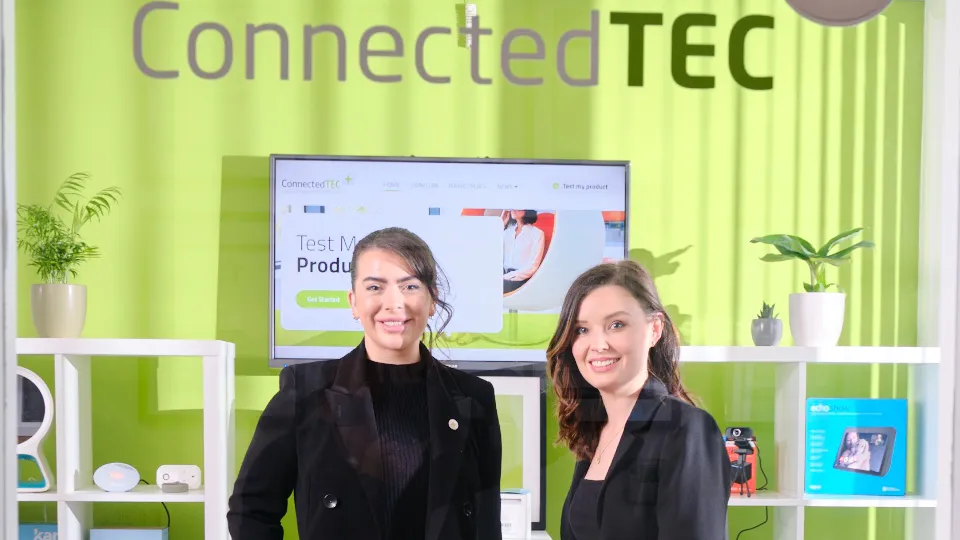“Every carer should receive an award for what they do. What they do daily is second to none” – Rebecca Vogel, Director of Technology at Connected Health.
Director of Stakeholder engagement, Rachel Brammer and Director of Technology, Rebecca Vogel talk to us about the substantial need for a hybrid care model especially with limited resources post-covid. As well as the importance to facilitate the ageing population that is increasing the demand for home care.
Based on Boucher Road in Belfast and in Tallaght, Dublin, Connected Health 2.0 created a brand-new innovative hybrid model of home care which blends technology with physical care.
Connected Health identifies problems on the ground such as patient medication adherence and falls within the home and creates innovative solutions to solve them.
“By 2050, the world’s ageing population is expected to double in size. Ultimately, the vision behind 2.0 is to prevent patients who can receive care packages from their home to do so. We have a large workforce to collect the key data they need to keep patients at home for care rather than being admitted to hospital. Connected Health work alongside trusts and private hospitals and we are currently working with the Belfast Trust on a discharge pilot. There is no technology enabled care budget within NI and that is what Connected Health is looking to change. However, if the ecosystem worked together especially with collaboration groups like HIRANI, we could all drive this change,” explains Rachel.
Director of Technology, Rebecca Vogel tells us about the exciting services Connected Health 2.0 can provide: “The medication management device, Yourmeds, provides a physical prompt to the client to indicate it is time to take their medication. Connected Health will receive an alert if medication is taken late or missed. Then, an early intervention can be made.
“Pacsana is a physical activity device monitors irregular physical patterns and has falls detection built in; again this allows for early intervention, and a physical care package can be amended based on these results.
“Feebris is a clinical grade monitoring tool that measures key observations such as blood pressure and pulse oximeter for saturation levels. This supports the hybrid-based care model as this provides an oversight of the baseline data and intervention can take place where irregular readings occur and this prevents the patient being readmitted to hospital.”
As well, Connected Health 2.0 delivers a virtual care model through devices already within the home such as smartphone, tablet, or an Alexa device and can provide virtual care in terms of companionship, prompting of tasks within the home and a security call so that clients can feel safe in their own home.
Rachel and Rebecca emphasise that technology-based hybrid models are not removing the carer-patient relationship, the technology simply gathers the data needed to make the change required.
“Carers are the backbone of the business, we want carers to know there is an open door to talk and we are always here for them,” said Rachel.
Last year Noleen Carey, from Connected Health, won the Carer of the Year award at Home and Community Care Ireland Awards. Rebecca described Noleen as “A glowing example of what it means to be a carer and is constantly going over and above to deliver high level of care to her clients”
Rachel would like the future of healthcare to focus on patient centricity with their needs as opposed to a one-size fits all. “The future should be a fairer, outcome-based system with less disparity based on location of residence. Ideally, all carers notes go digital to make for more efficient, easier working days.”
For more information go to: https://connected-health.co.uk/connected-health-2-0-unveiled-in-ni-as-europes-first-homecare-package-builder/
